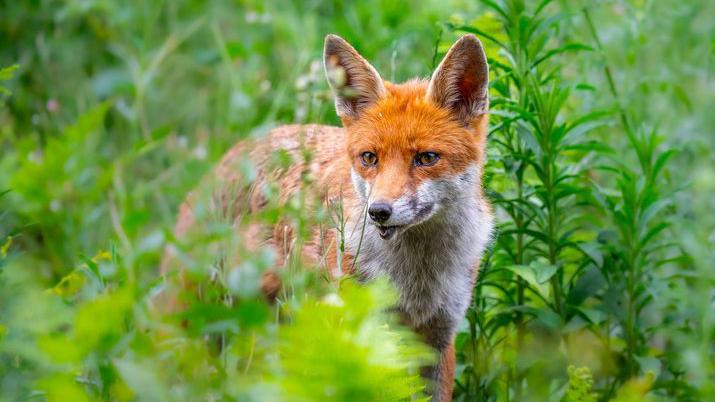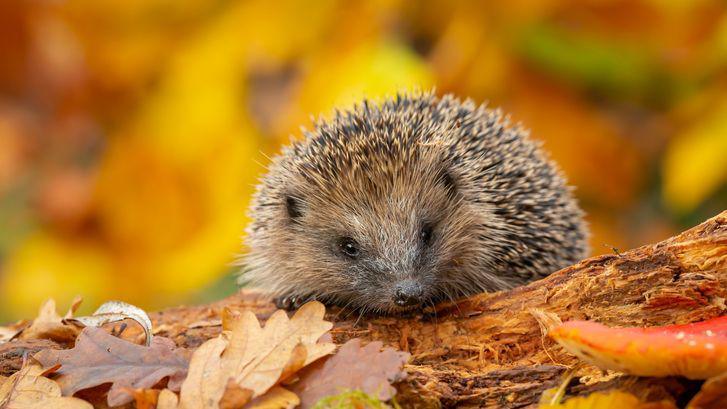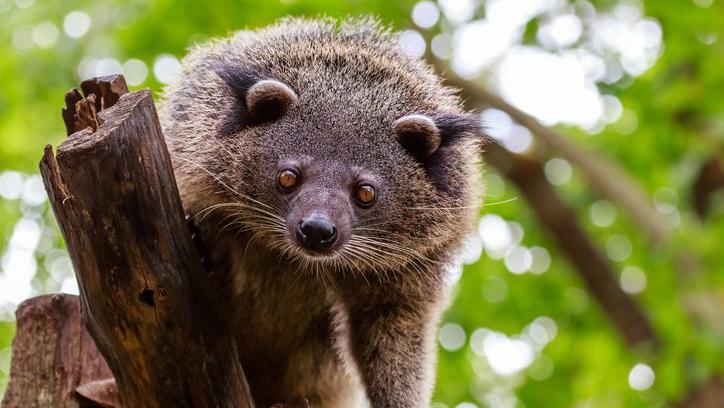What's your favourite wild animal?

- Published
Do you have a favourite wild animal? If so, you're not alone!
A new survey by nature conservation charity Fauna & Flora, found that the majority of people in Great Britain do.
It discovered that the most popular choice of wild animal was the fox, closely followed by hedgehog and deer.
We want to know what you make of the survey? Do you agree with the results? Or have you got a different favourite wild animal? Let us know in the comments below.
More like this
Butterflies and moths are 'picky eaters' during the day
- Published4 April
Scientists to study emotions of animals at new research centre
- Published27 March
Crocs and raccoons in Florida use sewers to get around
- Published20 March
What's happened?

The hedgehog came in second place in the survey
The survey found that more than six in ten people in Great Britain had a favourite wild animal and many of them could be found in the UK.
Of those, one in ten people (10%) chose a fox as their favourite, with hedgehogs a close runner-up on 9%.
Deer came in third place followed by elephants in fourth and other popular entries included tigers and otters.
There were also some more unusual choices picked out too!
These included the komodo dragon, the largest lizard on Earth, the duck-billed platypus - only one of two egg laying mammals in the world - and the leaf sheep, a type of sea slug known by some divers as 'Shaun the Sheep'.

The binturong, also known as the bearcat, was one of the more unusual choices
The survey was carried out by nature conservation charity Fauna & Flora, who launched their new campaign, Extraordinary Everything, aiming to draw attention to role of all species in the planet's survival and the importance of protecting them.
Kristian Teleki, the head of Fauna & Flora, whose favourite animal is the cleaner shrimp, explained: "I love my job because every day I learn more about just how extraordinary nature is."
"Like how a hawksbill turtle provides a living hotel to many other creatures such as barnacles and algae. Or how vultures help protect humans from disease by clearing up dead animals from the side of the road."
He added: "Every single species plays its own unique role in its habitat, just like every single one of us can help protect nature in our own way too."
